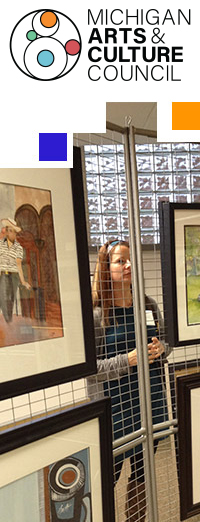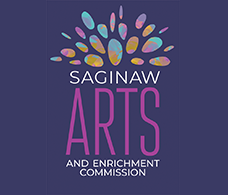Michigan Arts and Culture Council
The Michigan Arts and Culture Council (MACC) has announced new grantmaking initiatives for FY25 and beyond that will dramatically strengthen the agency’s ability to provide equitable, fair, and transparent funding opportunities to organizations that help ensure all Michigan communities thrive from the civic, economic, and educational benefits of arts and culture.
MACC Grant Programs
MACC’s main focus is to guide the distribution of grants to entities who provide arts and cultural programs and services throughout Michigan, and envisions a state where communities celebrate creative expression and every person has access to, or participates in, arts and cultural experiences.
Based on eligibility, organizations can apply for one of the two grant programs outlined below. MACC is now accepting applications in both programs.
FY25 Grant Funding Overview
- All applications are submitted online: macc.smartsimple.com.
- Any award must be expended within FY25 grant period: Oct. 1, 2024 to Sept 30, 2025.
- Applicant organizations are required to make a 25% cash match to their request amount.
- FY25 Application Deadline: July 24, 2024 before 5:00pm EST.
- Access the press release announcing the changes to the MACC grant programs here.
Mission Support Grant Program
The Mission Support grant program provides funding to eligible 501(c)(3) nonprofit arts and culture organizations throughout the state of Michigan that have a primary charitable purpose related to arts and culture as defined by the organization’s NTEE code assigned by the IRS. Applicants can submit one grant application to request funding in any/all of these categories: Operational Support, Facility Enhancement & Equipment Purchase, Professional/Organizational Development, Transportation and Arts Education programming.
Download the Mission Support Grant Guidelines Here.
The deadline to apply is Wednesday July 24, 2024 before 5:00 pm EST.
Experience Support Grant Program
The Experience Support grant program provides arts and culture-related project funding to Michigan organizations for which arts and culture is not the primary focus of the organization’s mission. Eligible applicants include municipalities, tribal entities, PreK-12 schools, colleges/universities, and non-arts/culture 501(c)(3) nonprofits. Applicants can submit one grant application to request funding in any/all of these categories: Project Support, Facility Enhancement & Equipment Purchase, Professional/Organizational Development and Transportation.
Download the Experience Support Grant Guidelines Here.
The deadline to apply is Wednesday July 24, 2024 before 5:00 pm EST.
Resources and Questions
MACC Virtual Office Hours:
Tuesdays 10 – 11 a.m. from May 11 to July 23
Link posted on MACC's website and social media.
MACC Virtual Workshops:
- May 20th @ 10am
- June 13th @ 2pm
- July 9th @ 6pm
Link posted on MACC's website and social media.
In-Person Information Sessions:
Check the MACC website for dates and locations.
Application Assistance
For questions during the application process, please contact any of MACC’s Program Managers.
- Alex Flannery, 517.331.5925, flannerya1@michigan.org
- Jeff Garrett, 517.242.3678, garrettj7@michigan.org
- Jackie Lillis-Warwick, 517.881.4114, lillis-warwickj@michigan.org
- Chad Swan-Badgero, 517.881.9472, badgeroc@michigan.org
FY 24 Final Reports
Organizations intending to apply for FY25 MACC funding opportunities should ensure they are up-to-date on any reports/requirements from previous MACC awards.
Organizations that are current recipients of FY24 MACC funding are reminded to check Final Report deadlines which can be found in the organization's signed Grant Agreement(s) available in SmartSimple. If the personnel listed on any current grant records have changed (such as Project Director or Authorizing Official), please submit a Grant Change Form in SmartSimple to update. Final report instructions for each FY24 grant program can be found below:
- Minigrant Project Grant - FY24 | Projects Minigrant Final Report Instructions
- Professional/Organizational Development Grant - FY24 | POD Final Report Instructions
FY24 Minigrant Information and Support
Saginaw Arts & Enrichment Commission
120 Ezra Rust Drive
Saginaw, MI 48601
989.759.1362, ext. 102
mbraun.saec@yahoo.com


